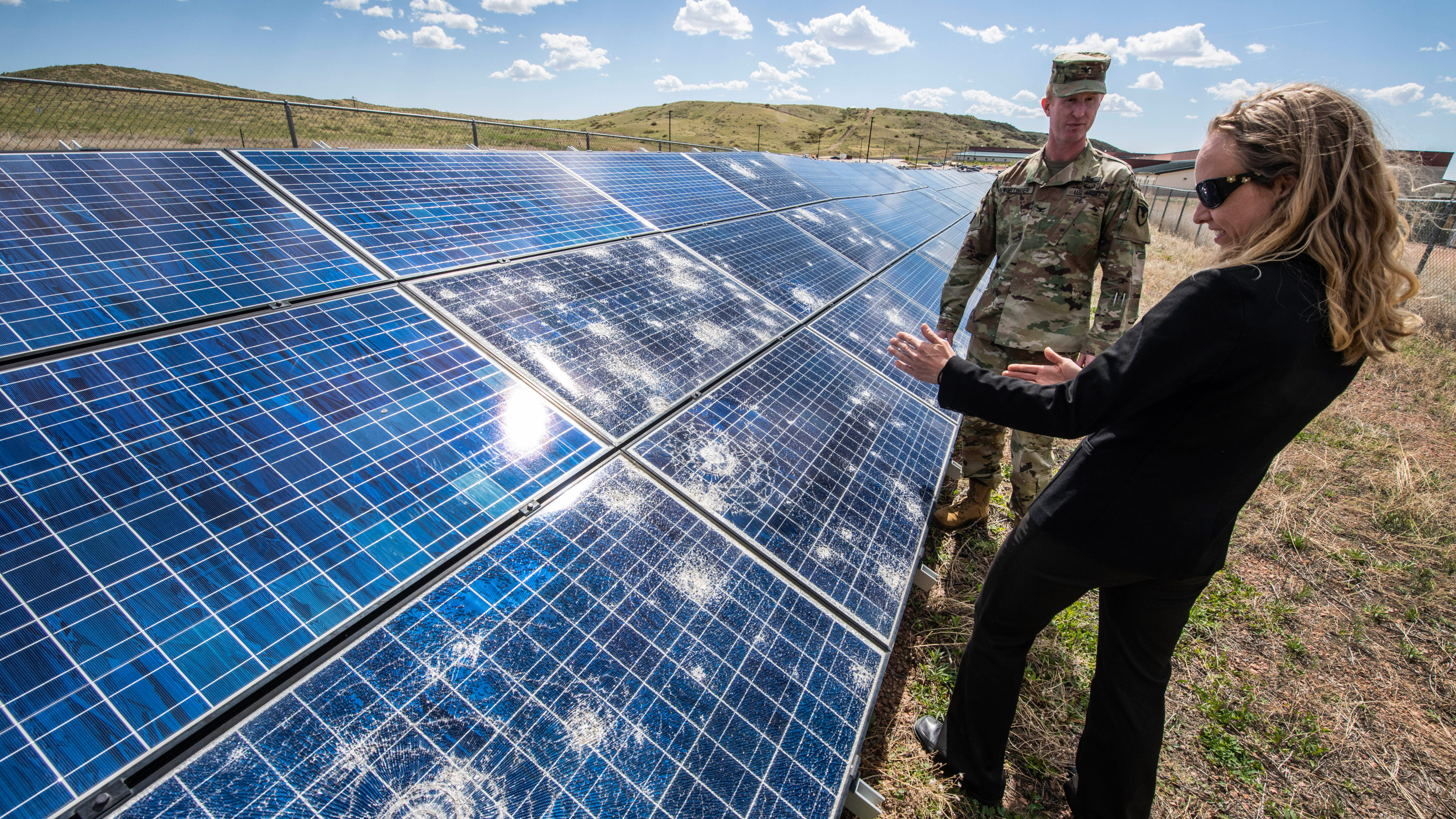Helping save Earth was more compelling than seeing it from space
Kate (Zimmerman) Anderson ’00

Kate (Zimmerman) Anderson ’00 thought she wanted to become an astronaut. She majored in aerospace engineering at MIT, joined the Air Force ROTC, and soon after graduation went to work as a launch vehicle engineer at the US Air Force’s Space and Missile Systems Center in New Mexico.
Then earthships—not spaceships—changed her career trajectory. A quirky feature of the New Mexico housing landscape, earthships are a type of self-sustained, off-grid home, one of a number of local green practices that piqued Anderson’s interest. “Instead of looking to space, I got interested in sustainability and renewable resources,” she says.
Today, Anderson serves as chief of staff for energy systems integration at the National Renewable Energy Laboratory (NREL) in Colorado, where she focuses on helping governments and other organizations make the transition to clean, resilient, and affordable energy.
Anderson joined NREL in 2008, after the Air Force helped her get an MBA from the University of New Mexico and a master’s degree in renewable energy technology from Loughborough University in the UK. She spent more than a decade developing sophisticated models to help organizations make sound economic decisions about renewable energy.
Then she realized that few decisions are completely data driven. Social factors, such as what the neighbors are doing, can play a role. So now she’s exploring what really motivates energy choices. For example, to help Los Angeles reach its goal of providing reliable, 100% renewable electricity by 2035, her team and the Los Angeles Department of Water and Power are meeting with community members to identify their concerns and priorities. “That’s what you need to do to get to the real transition,” Anderson says.
She is also working to ensure that energy researchers consider the human costs of technology decisions. Using cobalt in batteries can extend their life, for example, but the cobalt mining industry is notoriously dangerous and abusive to miners. “By the time you get to deployment, inequity can be baked in,” she says.
In November 2021, Anderson won the Social, Economic, and Policy Innovation Award from the US Clean Energy Education and Empowerment Initiative. In May 2022, she also earned a PhD in advanced energy systems from the Colorado School of Mines.
“The amazing people I get to work with give me hope,” she says. “They are all so driven by this vision to create a clean energy future for the world.”
Keep Reading
Most Popular
Large language models can do jaw-dropping things. But nobody knows exactly why.
And that's a problem. Figuring it out is one of the biggest scientific puzzles of our time and a crucial step towards controlling more powerful future models.
How scientists traced a mysterious covid case back to six toilets
When wastewater surveillance turns into a hunt for a single infected individual, the ethics get tricky.
The problem with plug-in hybrids? Their drivers.
Plug-in hybrids are often sold as a transition to EVs, but new data from Europe shows we’re still underestimating the emissions they produce.
Google DeepMind’s new generative model makes Super Mario–like games from scratch
Genie learns how to control games by watching hours and hours of video. It could help train next-gen robots too.
Stay connected
Get the latest updates from
MIT Technology Review
Discover special offers, top stories, upcoming events, and more.